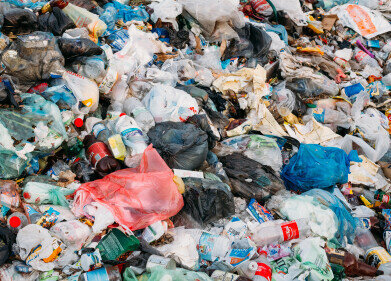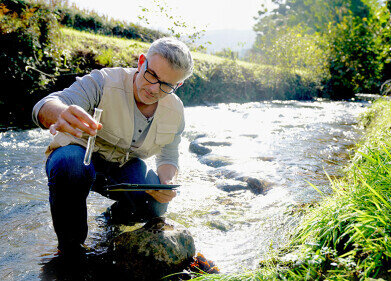Environmental Laboratory
Which Foods Are Unsustainable - and What Are the Alternatives?
Dec 10 2018
There is a growing trend across the world to pursue a vegan diet, with its proponents claiming that it’s not only the most environmentally-friendly course of action available, but also one of the healthiest lifestyles you can live as well. However, such a drastic change in eating habits might seem a bridge too far for many people, who nonetheless would like to improve their environmental impact with regards to their diet.
With that in mind, here is a short list of five of the most unsustainable foodstuffs out there and what their alternatives are, allowing you to reduce your carbon “foodprint” without making changes you will not be able to stick to in the long run.
- Factory beef
The majority of meat produced for human consumption is reared in factory conditions, known as concentrated animal feeding operations (or CAFOs), which the Environmental Protection Agency (EPA) deems as one of the biggest contributing factors to environmental pollution. As well as the energy consumed by CAFOs, the livestock themselves also produce startling amounts of methane emissions, which is one of the most damaging greenhouse gases (GHGs) for the planet’s temperature. As such, reducing your meat intake as much as possible and doing your best to ditch red meat altogether is the best starting point for a more environmentally-friendly diet.
- Lamb
Lamb might not be as popular as beef but it actually carries double the carbon footprint, making it a highly unsustainable choice. In fact, one report has estimated that consuming just 200g of lamb (enough for a normal-sized single portion) is equivalent to the same amount of carbon emissions as driving a car for 15 miles. Again, the best course of action would be to avoid red meat as far as is possible and obtain protein from alternative sources such as beans, nuts and peas. If you must eat meat, locally cultivated, corn-fed chicken or rabbit are the most sustainable options on the market.
- Certain seafood
The most unsustainable fruits of the sea are the ones which have the biggest impact on the rest of the food chain, such as shrimp and tuna. In fact, the EPA estimates that consumption of shrimp can have a 200%-500% impact on other species in the same habitat, resulting in a ripple effect that could have disastrous repercussions for all forms of marine life. With regards to tuna, their position at the top of the food chain means they often accumulate large amounts of mercury in their bodies, which is bad for human health. Try switching to prawns instead of shrimp and trout or bass instead of tuna.
- Corn
Since corn is a primary food source for both humans and animals, it’s in huge demand and must be farmed in vast quantities using chemical fertilisers and pesticides. Agricultural run-off causes these chemicals to infiltrate our rivers and waterways, and although high-resolution monitoring helps to aid river conservation, the pollution can severely deplete oxygen and nutrients and make it hard for flora and fauna to survive. A better option would be to choose sweetcorn, since it’s less intensively farmed than standard corn, or source your corn produce at a local farmer’s market or other ethical location.
- HFCS foods
As well as being used as fodder for humans and livestock, 12% of the aforementioned corn is harvested into high-fructose corn syrup (HFCS), used to artificially sweeten all manner of foodstuffs from bread to soft drinks. What’s more, the farming methods used to produce HFCS are a third more fuel-consumptive than other corn cultivation techniques and dry up the soil to make it less conducive to growing other crops. Substituting sweets and pastries for natural sugars in the form of fruits is an ideal solution, as is switching soft drinks for water. Your body will feel better for the change as well!
Digital Edition
IET 34.2 March 2024
April 2024
Gas Detection - Biogas batch fermentation system for laboratory use with automatic gas analysis in real time Water/Wastewater - Upcycling sensors for sustainable nature management - Prist...
View all digital editions
Events
Apr 30 2024 Melbourne, Australia
Apr 30 2024 Birmingham, UK
May 03 2024 Seoul, South Korea
May 05 2024 Seville, Spain
May 06 2024 Minneapolis, MN, USA


















